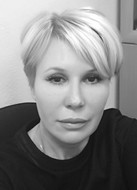Professional working capacity maintenance in senior education specialists
Фотографии:
ˑ:
PhD, Associate Professor O.V. Mironova1
PhD, Associate Professor L.V. Yarchikovskaya1
Dr.Hab., Professor Yu.Ya. Lobanov2
PhD, Associate Professor V.N. Kovalenko4
PhD, Associate Professor A.V. Tokareva3
1St. Petersburg State University, St. Petersburg
2Herzen State Pedagogical University of Russia, St. Petersburg
3St. Petersburg State University of Architecture and Civil Engineering, St. Petersburg
4A. F. Mozhaisky Military-Space Academy , St. Petersburg
The study analyzes the job responsibilities of education specialists with a special attention to the job responsibilities and specifics of potential detrimental effects on health. The study gives an analysis of the senior education specialists’ physicality variations; and offers two professional working capacity maintaining physical training models for this age group. Theoretical and experimental studies were performed at St. Petersburg State University of Architecture and Civil Engineering. Applied for the study purposes were questionnaire surveys; process chronometry; progress tests; fact-finding (laboratory) and progress-focused educational experiments; and statistical data processing methods. Subject to the progress-focused experiment were two Experimental Groups (EG1 and EG2) and a Reference Group (RG) composed of 40-plus year-old educators. The study data and analyses showed benefits of the working capacity maintaining physical training models as verified by the EG versus RG progress in the health and physicality rates
Keywords: physical condition, physical exercises, physical training, motor activity, health-improving orientation.
References
- Baturin A. E., Volskiy V. V., Kovalenko V. N., Pomogaeva N. S. Eksperimentalnaya proverka modeli fizicheskoy trenirovki voennosluzhaschikh mirotvorcheskikh sil [Experimental check of physical training model for servicemen of peacekeeping forces]. Uchenye zapiski un-ta im. P. F. Lesgafta, 2017, no. 9 (151), pp. 32–37.
- Grigoriev V. I., Mironova O. V., Tokareva A. V. et al Dykhatelnye gimnastiki na zanyatiyakh fizicheskoy kulturoy so studentami spetsialnoy meditsinskoy gruppy [Breathing exercises at physical education classes with special health group students]. Uchenye zapiski un-ta im. P F. Lesgafta, 2016, no. 2 (132), pp. 67–71.
- Endaltsev B. V., Tajmazov V. A. [ed.], Gorelov A. A. [ed.] Opredelenie fizicheskoy gotovnosti lyudey k trudovoy deyatelnosti. Materialy pervogo mezhdunarodnogo kongressa 'Terminy i ponyatiya v sfere fizicheskoy kultury' [Determination of individual physical fitness for work. proc. 1 st international congress ' Terms and concepts in physical culture']. St. Petersburg: St. Petersburg SPU publ., 2007, pp. 80–81.
- Mironov V. V., Pashuta V. L. Teoriya i metodika fizicheskogo vospitaniya, sportivnoy trenirovki, ozdorovitelnoy i adaptivnoy fizicheskoy kultury. Ucheb. posobie [Theory and methods of physical education, athletic training, health and adaptive physical education. Study guide]. St. Petersburg: MIPE publ., 2010, 296 p.
- Platonov V. N. Obschaya teoriya podgotovki sportsmenov v olimpiyskom sporte [General theory of Olympic athletes' training]. Kiev: Olimpiyskaya literatura publ., 1997, 583 p.
- Yarchikovskaya L. V., Koval T. E., Lukina S. M., Ustinova O. N. Mesto dykhatelnykh uprazhneniy v kombinirovannykh ozdorovitelnykh programmakh [Role of breathing exercises in combined health programs]. Teoriya i praktika fiz. kultury, 2017, no. 10, pp. 35–37.




 Журнал "THEORY AND PRACTICE
Журнал "THEORY AND PRACTICE